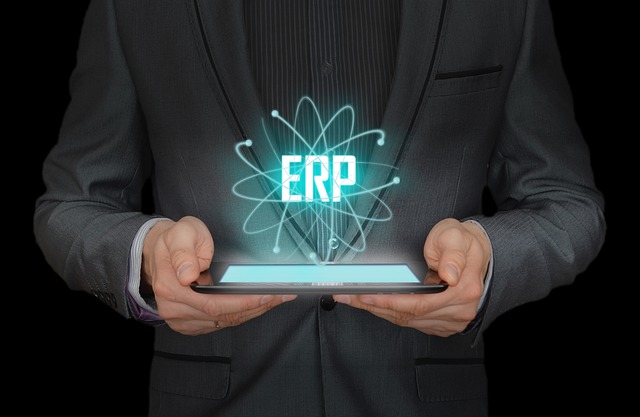Strengthening Cybersecurity: Key Benefits of Integrated ERP Systems
A business is like a piece of machinery. It consists of many different parts and each has to work optimally for smooth operation. Even a small hitch in the cycle can quickly lead to complete failure. Your business too operates on various processes. From supply line management to payroll distribution every activity has to be monitored for efficiency. The data collected from all these also needs to be analyzed for informed decision-making. So how do you manage it all while still immersed in your day-to-day activities? An integrated ERP system could be the solution.
ERP stands for Enterprise Resource Planning. These modules combine data and functionality to streamline business operations. An integrated ERP system combines all the individual modules into one so you can manage your entire business with a single software. They are extremely comprehensive, handling everything from the smallest HR conflict to the entire manufacturing process. Let's look at the benefits you can reap by incorporating an integrated ERP system into your business operation.
Benefits of an Integrated ERP System
Implementing an integrated ERP system into your business can be a wise move. Here is why:
Automates Processes
Many everyday activities, such as data entry, accounts reconciliation, and conversions, are prone to human error. With an integrated ERP module you can automate these mundane tasks. This improves their efficiency, makes them more accurate, and frees up the workforce for other more important tasks.
Besides the repetitive tasks, this module can also take care of cross-functional activities. These include compliance reporting, inventory checks, and information collection for distributing purposes.
Supply Chain Optimization
One of the biggest perks of NetSuite implementation services is how they optimize your supply chain. When all parts of your business are connected, you can track inventory, orders, and shipments in real-time. This means fewer delays, better stock management, and happier customers. An integrated ERP system helps you see the whole picture, so you can make smarter decisions and keep everything running smoothly.
Collects Real-time Data
A fully integrated ERP software updates data in real-time, so you are aware of what's happening even when you are not physically present. Accounting numbers or KPIs, you can access the most current information from any location. The feature comes in handy for:
- Sales staff when they are fulfilling orders from the customers
- Producers when they are maintaining margins amidst changing conditions
- Maintenance workers when they are performing repairs
- Executives when they want to see where their business is standing.
Source of Information
Being centralized, integrated ERPs are excellent sources of all business-related information. Their interconnectedness eliminates manual searches and duplicate data. Some ERPs ensure data security too, keeping you safe from modern cyber attacks
With more organized and accurate data, knowledge-sharing between the different departments becomes seamless. This, in turn, saves time, optimizes operations, and facilitates decision-making.
Faster Return on Investment
One major benefit of an integrated ERP system is the faster return on investment (ROI). Since everything is streamlined, you save time and reduce costs. The match of improved efficiency and reduced errors leads to quicker financial gains. You’ll quickly see the benefits because processes are more efficient and errors are minimized. Plus, with better data at your fingertips, you can make decisions that positively impact your bottom line sooner rather than later.
Ensure Regulatory Compliance
Regulatory compliance is extremely important for any business. But keeping up with the ever-changing rules and regulations is tough. Integrated ERP systems simplify the task with their compliance management processing. They support documentation that ensures your business operations adhere to the regulatory standards. Plus, their regular updates inform you about new local, state, and federal laws so you can easily navigate the compliance landscape.
Visual Workflows
Unlike standalone applications, integrated ERP systems typically provide user-friendly dashboard interfaces that help you understand and monitor the performance of your business activities. You could browse through overly complex data and reports or have an at-a-glance view of what your workflows are. This makes it easier to see where your business is going and areas which can be improved. It also makes training new employees much easier, as they can get up to speed by following the clear visuals.
Future-Proofed Technology
Integrated ERP systems offer future-proofed technology. This means the system is designed to grow and adapt with your business. As technology advances, your ERP system can be updated to include new features and capabilities. This keeps your business on the cutting edge without needing to overhaul your entire system. It’s like having a tech solution that evolves with you, ensuring you're always equipped with the latest tools to stay competitive.
Conclusion
Integrated ERP systems bring a host of benefits to any business. They enhance efficiency, improve decision-making, and ensure that your business can adapt to changing technological landscapes. By investing in an integrated ERP system, you can improve your current operations and set the stage for sustained growth and success. It’s a strategic investment that can yield significant returns by making your operations smoother and more efficient.

